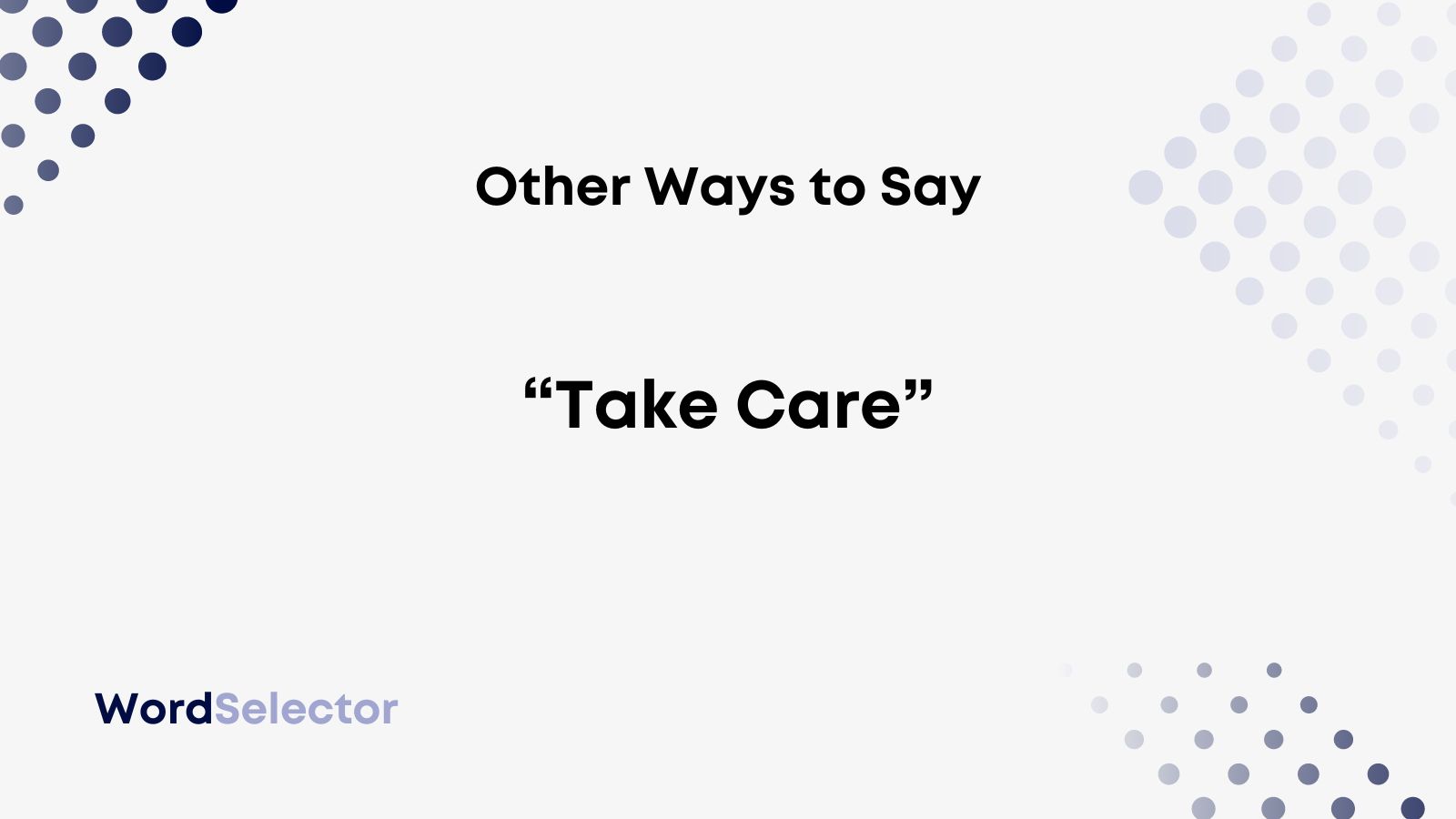Is “take care” all that effective at the end of an email? You’re already asking yourself that question, so it’s useful to go through some alternatives to help out.
Luckily, this article is here to help! We’ll explore some options giving you a different way to say “take care” when you’re trying to sound nicer or more respectful.
Other Ways to Say “Take Care”
- All the best
- Best wishes
- I wish you well
- My best
- You have my wishes
- I hope you’re well
- See you again soon
- Take it easy
- Look after yourself
- Make sure you take care
- I hope things go well
- Talk to you later
- Have a nice life
KEY TAKEAWAYS
- “Take care” is good informally but is inappropriate in formal emails when signing them off.
- You should use “all the best” when you need to sound professional at the end of an email.
- You can also use “best wishes” informally as a sweet way to say take care.
Keep reading to learn more about the most effective synonyms for “take care.” There are plenty of great options, but we’ll go through the most effective ones.
You can also skip to the final section to learn whether “take care” is polite in formal writing. That way, you’ll know whether you should include it in an email at all.
All the Best (Formal)
“All the best” is a great example of how to say “take care” in a more professional way. It’s a very common sign-off statement in an email, making it one of the most effective choices.
In formal writing, “all the best” shows that you care and want to wish someone well. If you’re familiar with the recipient, you should use it. For example, if you are emailing a colleague and want to wish them well, “all the best” is a great alternative.
We highly encourage using “all the best” over “take care” in formal emails. It’s much more effective because it shows more respect. It is also much more polite, which is going to make your email much better overall.
Check out how to end an email with “all the best” below:
Dear Michelle,
We still need to discuss these matters before advancing. Is there anything you need to tell me?
All the best,
Jacqueline
Best Wishes (Informal)
“Best wishes” is a fantastic informal synonym that works well. It’s very versatile, too, meaning it can work in formal emails.
You should use “best wishes” at the end of an email. It’s a good sign-off phrase, showing that you wish someone well and hope for the best.
Most of the time, you’ll find yourself using it when emailing friends you might not have seen for a while. It suggests you offer your “best wishes” to them.
Since it’s a versatile phrase, you can also use “best wishes” instead of “take care” in most formal emails. That way, you’re offering kinder thoughts at the end of the email, which is more respectful and kind to the recipient.
You can use “best wishes” in an email like so:
Dear Jonathan,
I can’t find the documents right now. Do you have any idea where they might be?
Best wishes,
Richard
Is It Rude to Say “Take Care”?
“Take care” is not rude in most cases, but it’s not a very polite option. You should not use it in formal emails. Instead, stick to using it informally when wishing someone well.
The problem is that “take care” sounds like a brush-off comment. It doesn’t sound like you care much about the person you say “take care” to if you sign a business email off with it.
You can also use these variations to mix up your informal writing:
- Take care and be safe
- Take care of yourself
While it’s not a professional option, it’s still appropriate in conversational contexts. You won’t often find yourself needing to email a friend with “take care” at the end, but at least you know it’s an option.
Most of the time, people will tell you if they don’t appreciate you saying “take care.” It sounds a bit impersonal, so you must watch for that.
That’s all there is to say! You can always bookmark this page to come back at a later time. After all, you might need reminders on the best ways to say “take care” later.

